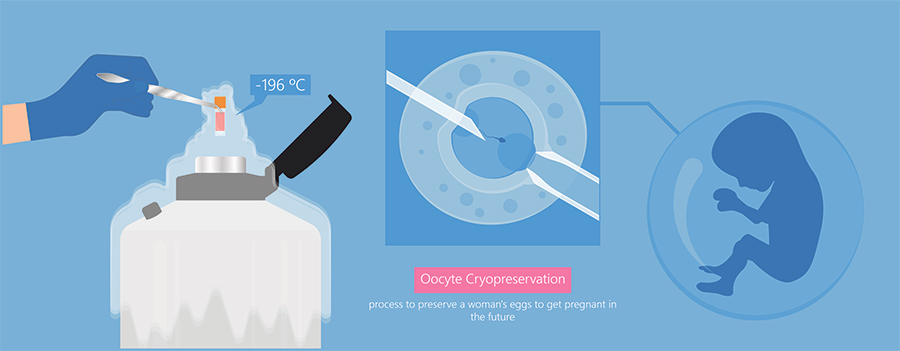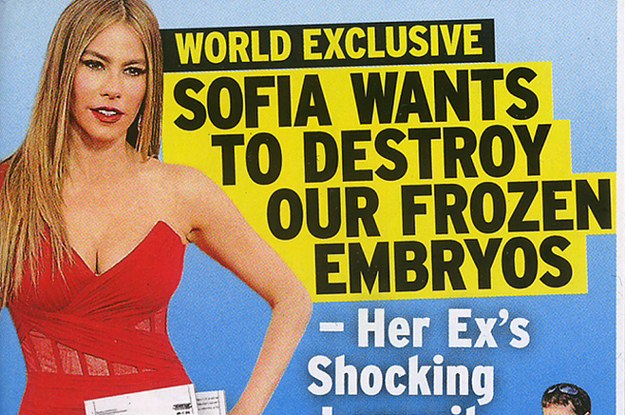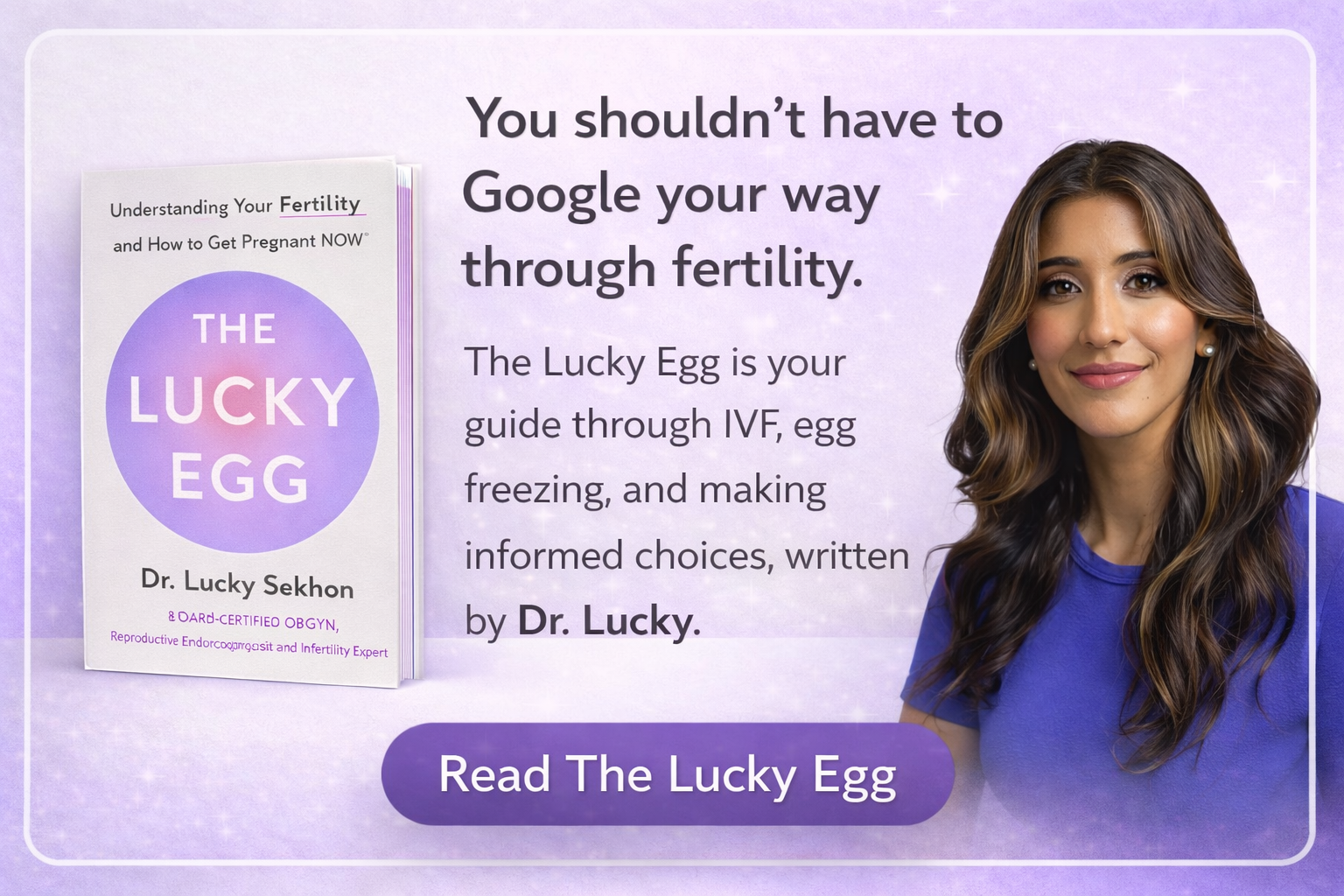Committing to egg vs. embryo freezing – considerations for choosing the best strategy for YOU

A not-so-fun fact that we know all too well is that we have a limited pool of eggs and are unable to regenerate or fix our eggs over time. This leads to an age-related reduction in our natural fertility due to a higher proportion of eggs giving rise to unhealthy, genetically abnormal embryos (which can lead to failed implantation and miscarriage), and a smaller pool of eggs being available for the purpose of IVF, if treatment is needed to conceive. Fertility preservation is a process where the eggs that have been recruited to the surface of the ovary, to become available for ovulation/egg retrieval, are matured and extracted from the ovary and then frozen, before they can undergo a natural process of cell death. Fertility preservation = salvaging whatever eggs we can access and saving them for the future, in the event that IVF is needed to conceive. Future reasons to need IVF include an endless list of examples – such as finding out your fallopian tubes are blocked, egg quality issues (often due to advancing age, especially >38 years old), sperm quality issues, wanting to genetically test embryos to avoid passing a genetic mutation to a future child, etc.
If you’re looking to preserve your fertility, you have 2 main options – freezing eggs and/or embryos. There are other very cool, sci-fi type options undergoing current investigation (such as the freezing of ovarian tissue or whole ovaries) – but these are not considered prime-time and are mainly used in a research setting. For women who are single or wanting to keep their options open to conceive with a different partner(s) or sperm donor, egg freezing is the best option that offers the most flexibility. It is also going to be simpler to freeze eggs only, as it only involves you and there will never be a question about legal ownership or rights over the eggs. For those in relationships where they feel confident that they would want children with their partner, or for same sex couples or single mother’s by choice who would like to ensure they can have multiple children linked by the same sperm donor, embyo freezing may be the best option.
There are severe medical advantages to embryo freezing:
- You know what you have:
Human reproduction is inefficient. Not every egg is destined to thaw successfully, fertilize, turn into an embryo 5-7 days later, and to be genetically normal (with all 46 chromosomes). When you create embryos upfront, you see this attrition take place in real time and will also be able to genetically test the embryos which will inform decision making on whether more cycles are needed to obtain an adequate number of normal, healthy embryos.
2. You feel confident in your ability to come back and use the embryo(s):
Embryos have 100-200 cells compared to an egg which is a single, large cell. Embryo thaw survival rates are consistently in the high 90s %… in high quality labs there is a 2-3% or lower rate of embryos not surviving the thaw. With eggs, thaw survival can vary anywhere from ~80 to 95% depending on egg quality, age, and other individual factors. When freezing embryos, attrition is minimized as you skip the step of thawing the eggs which leads to some eggs being lost at that early stage.

Deciding to freeze embryos is a big commitment. It is important to sign legal consents and to think through various decisions such as whether/how legal ownership of the embryos would be handled in the event of a divorce, death of either partner, etc. Exhibit A: the high profile case of Sofia Vergara and her ex-fiance Nick Loeb who battled with her in the courts for several years, arguing that he should be able to use the embryos they created when they were together, to conceive a child via a gestational carrier (what most people call a ‘surrogate’). In comparison, egg freezing = ‘no strings attached’.
These are not easy decisions – and sometimes when patients cannot decide they may choose to do both an egg and embryo freezing cycle – the best of both worlds! These are decisions that your fertility doctor can help you talk through and weigh the pros and cons of each. So next time your fertility doctor asks about your relationship and whether things are ‘rock solid’, know that they aren’t just being nosey – they are trying to help you make the most practical, successful approach that makes the most sense for your health and personal life situation.


